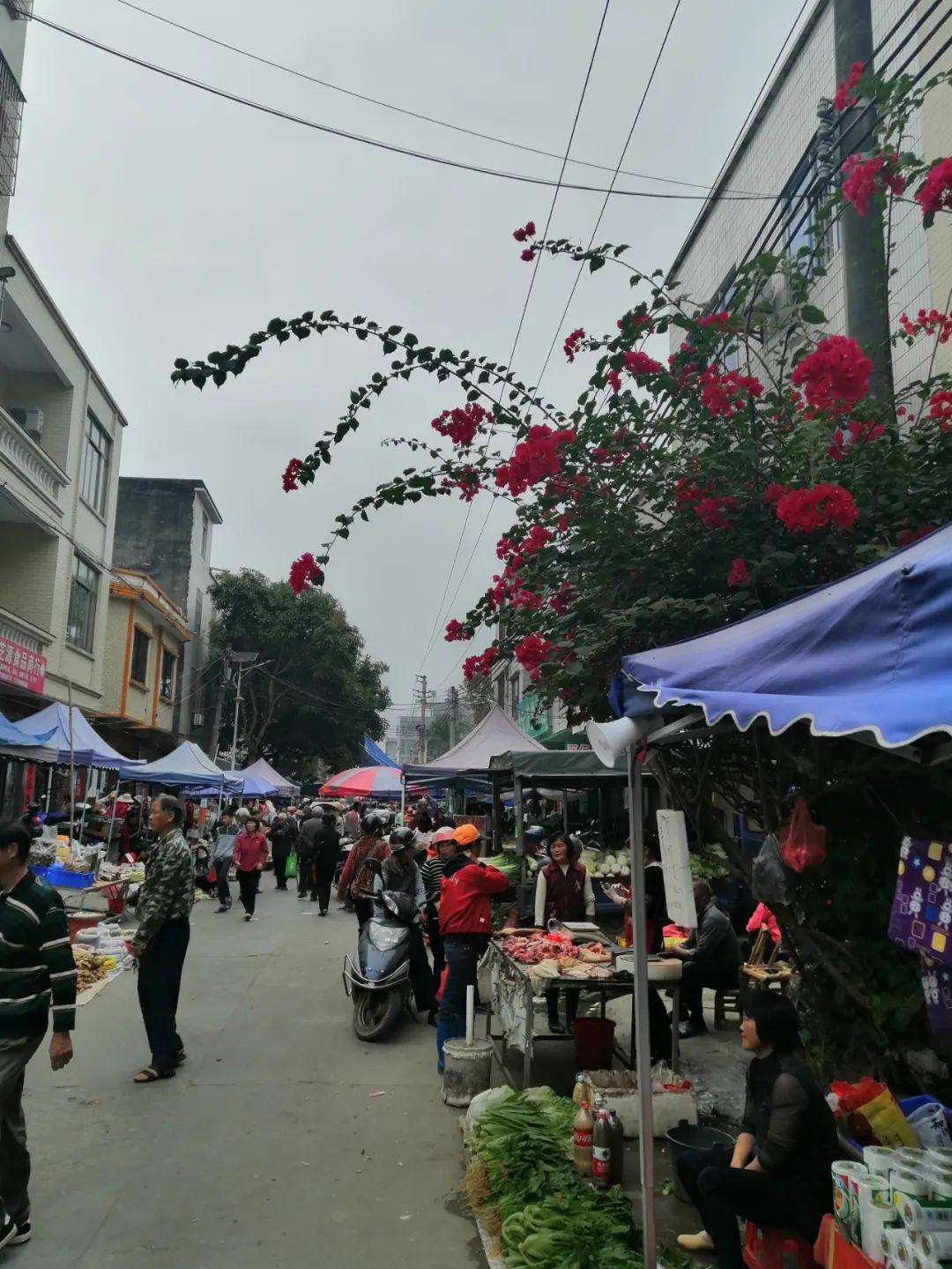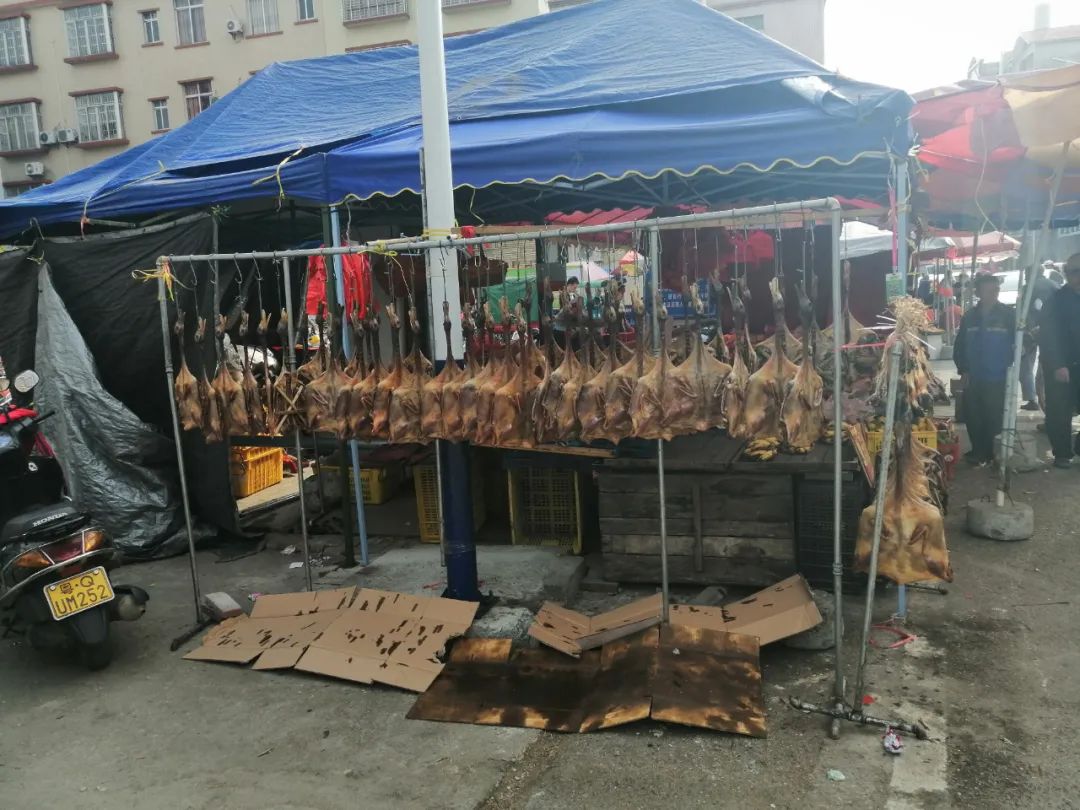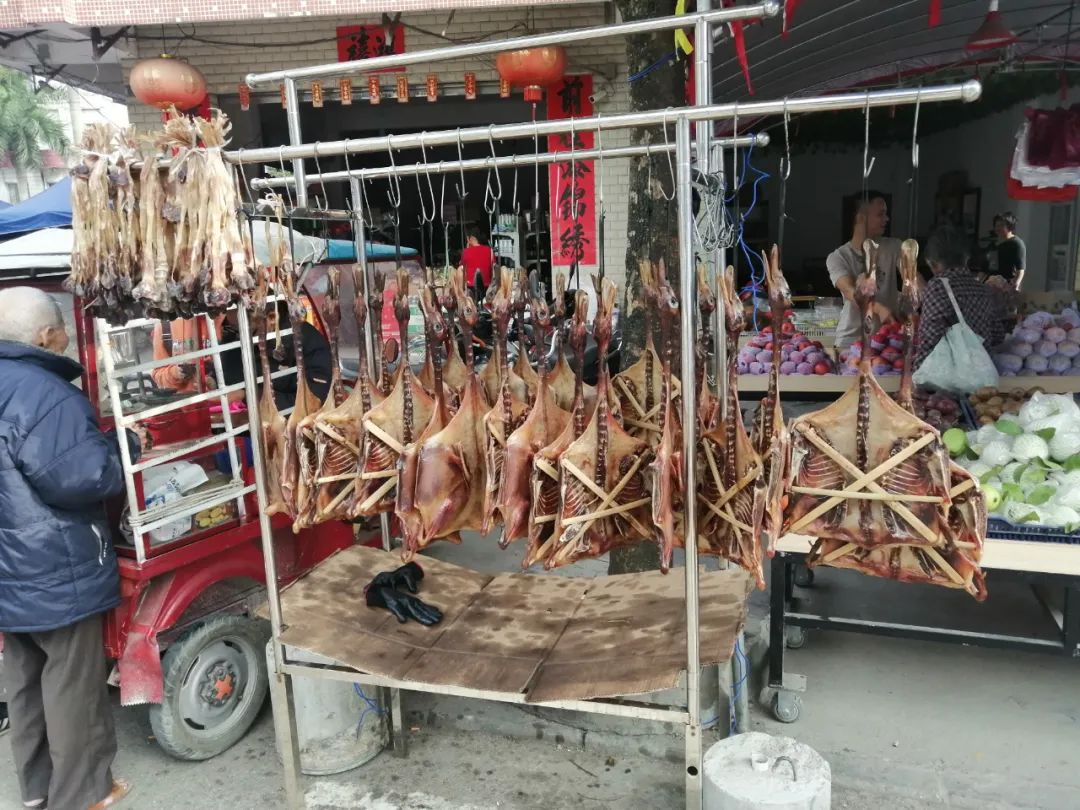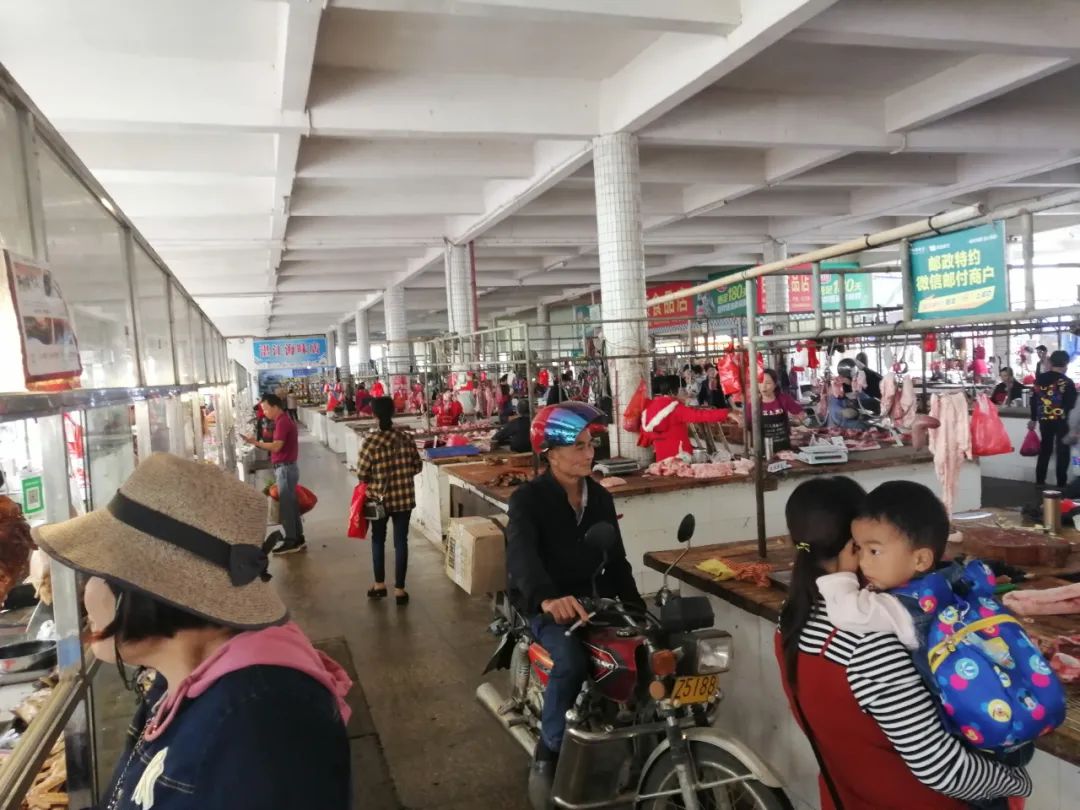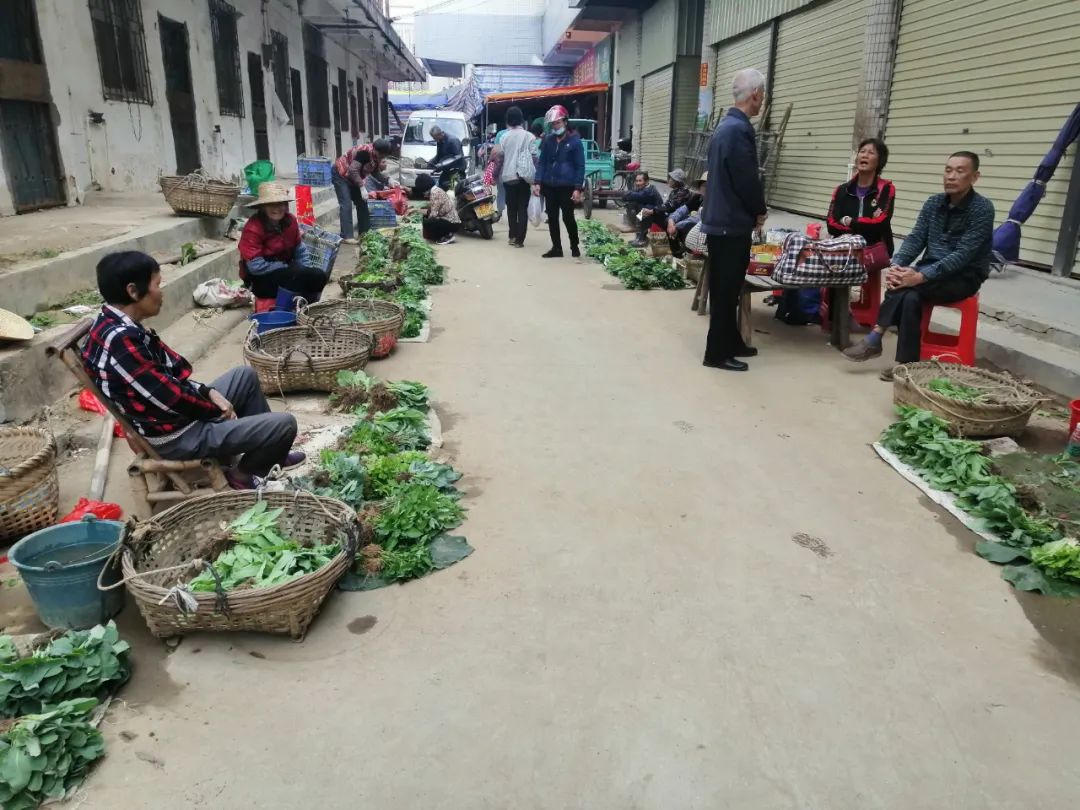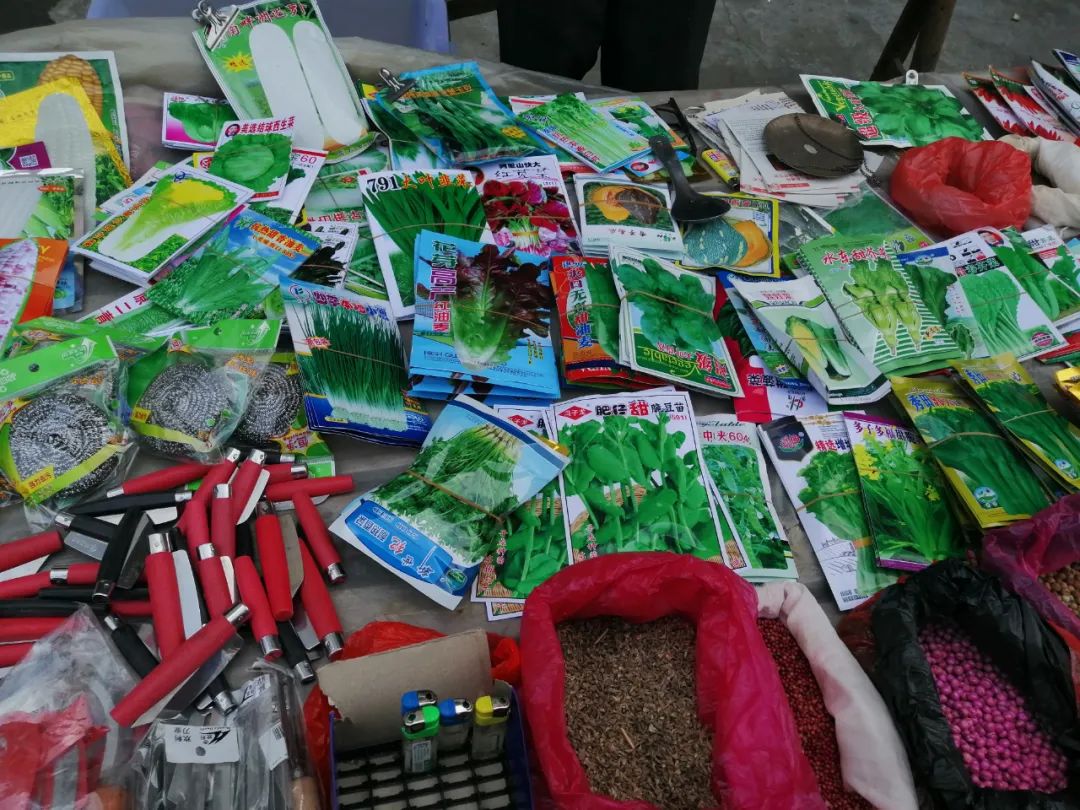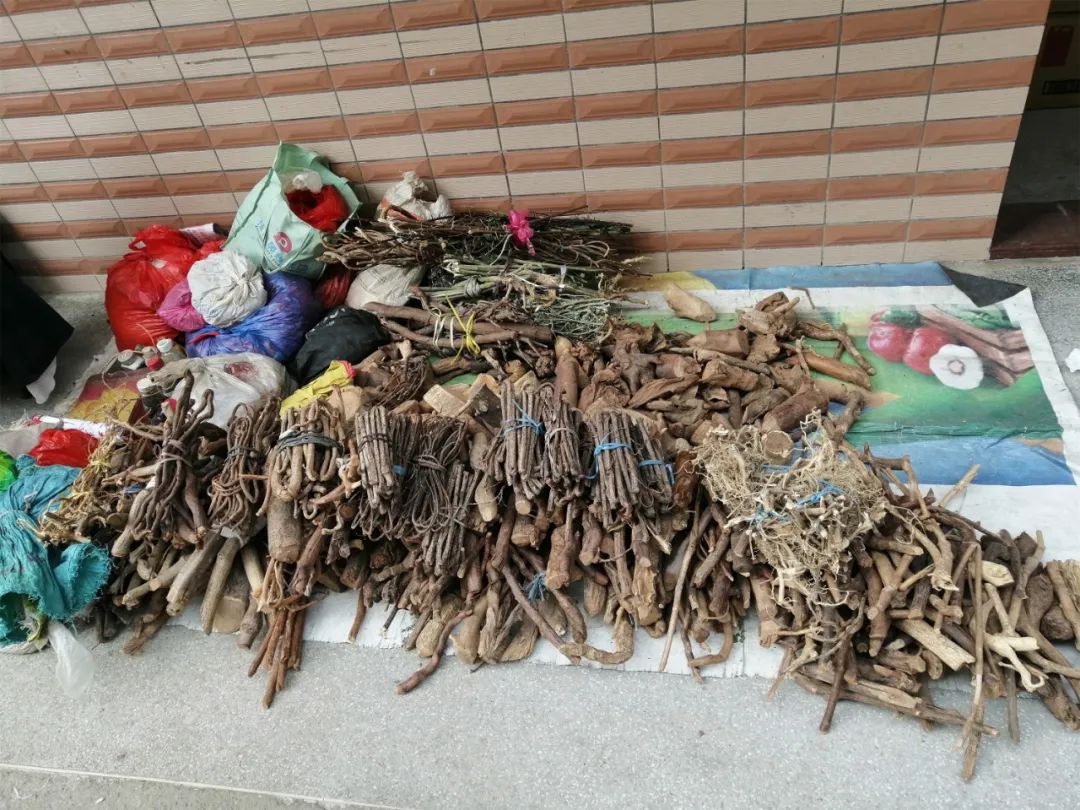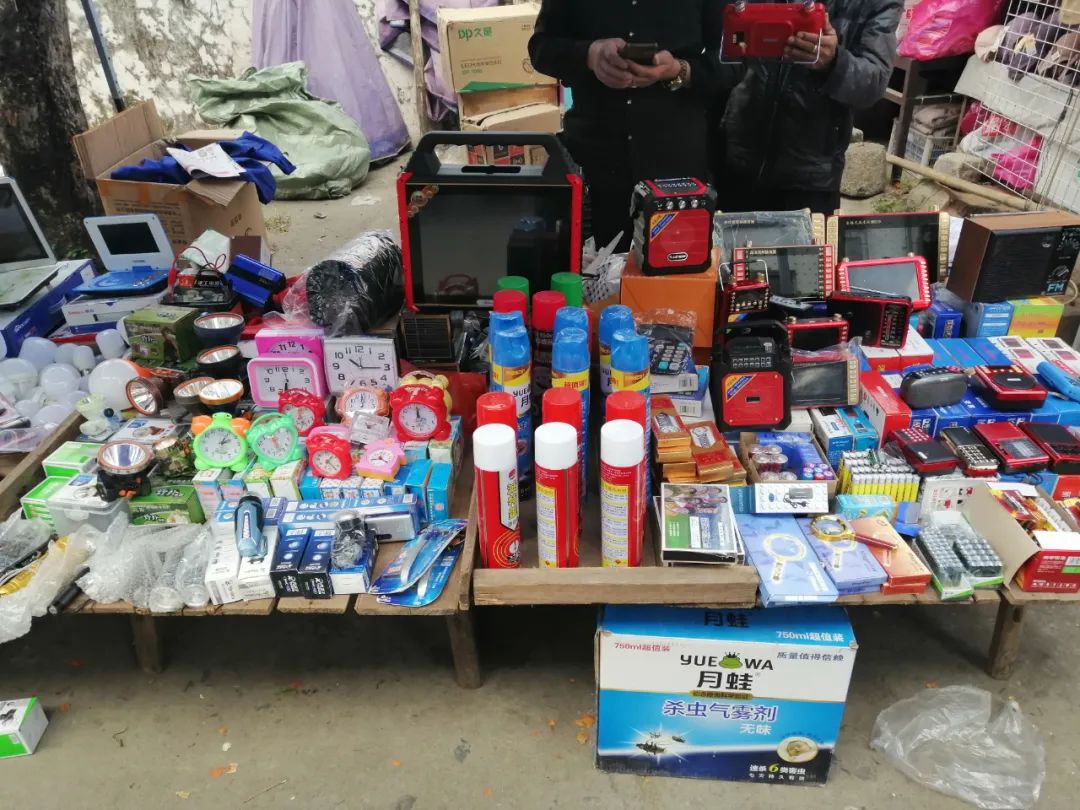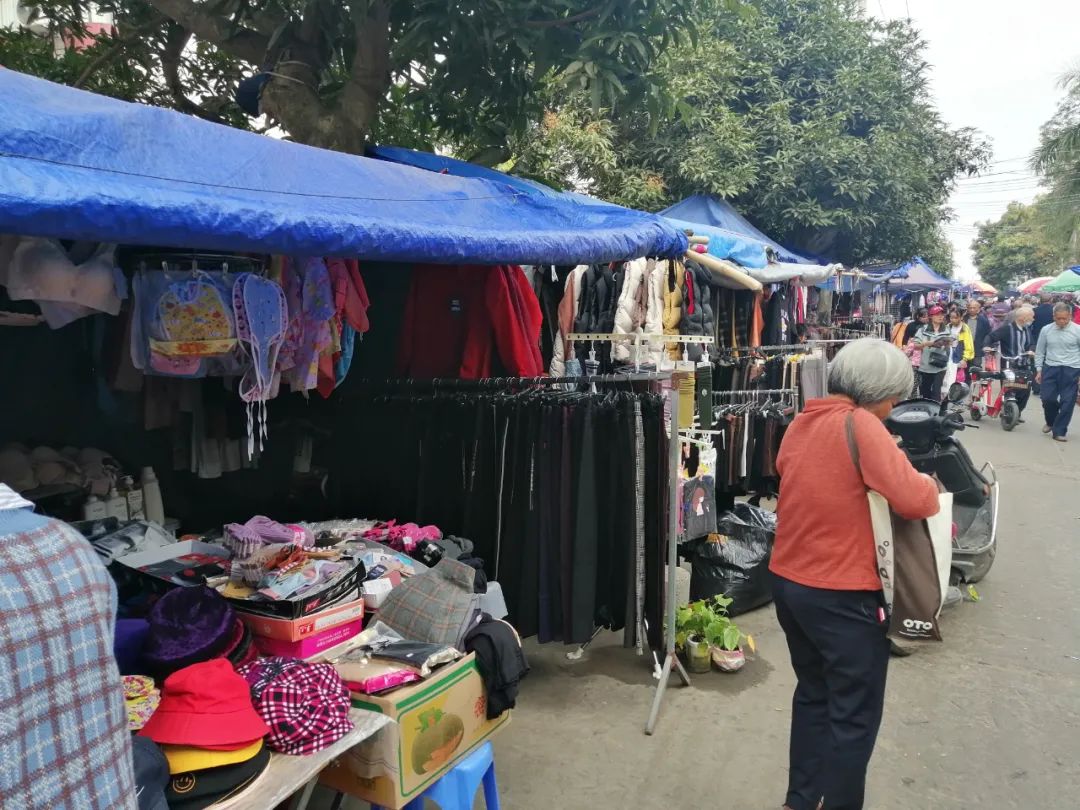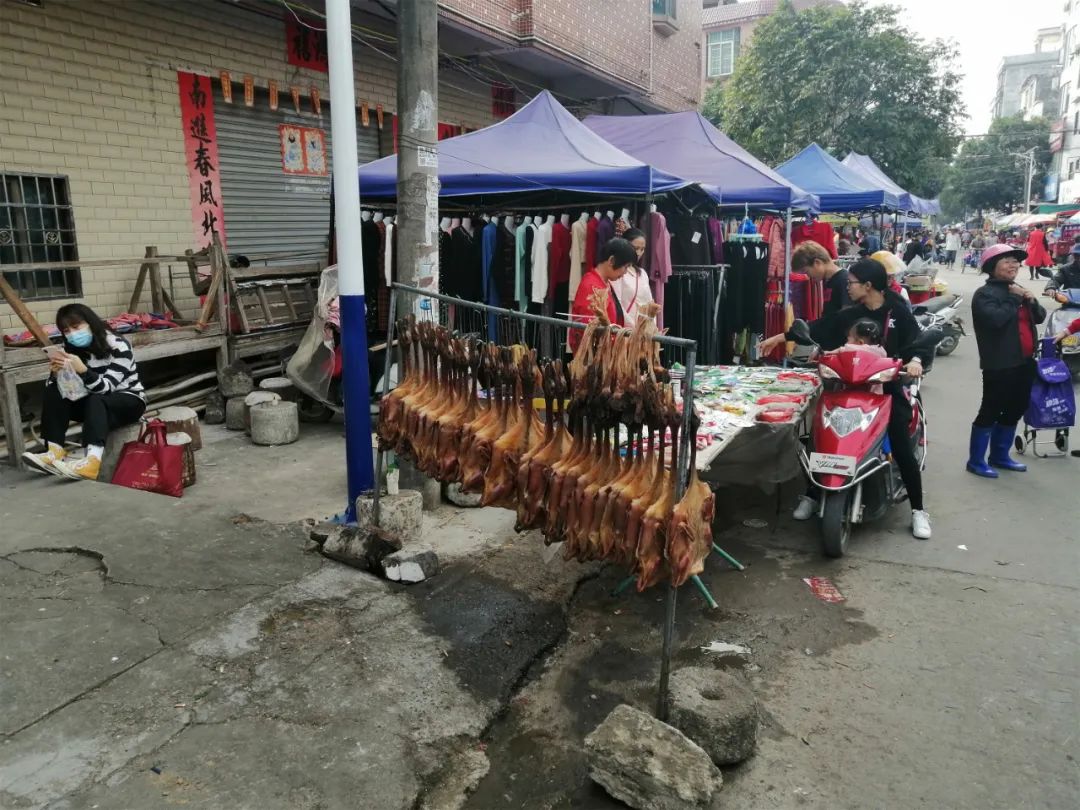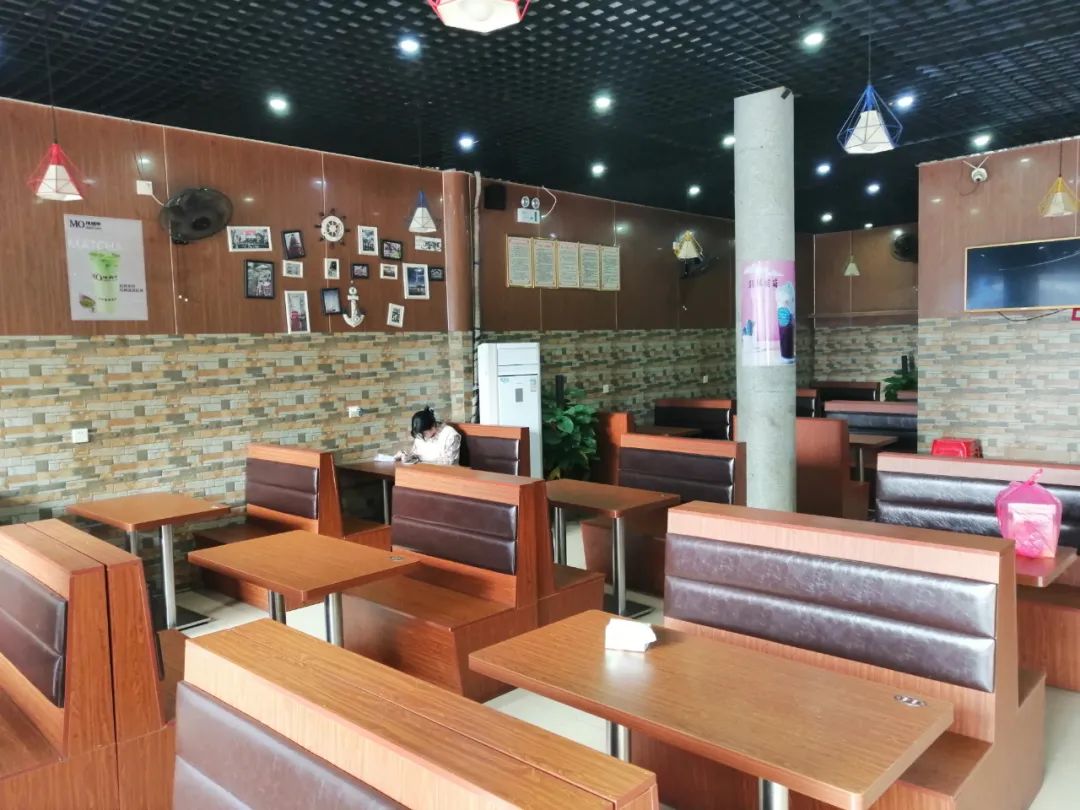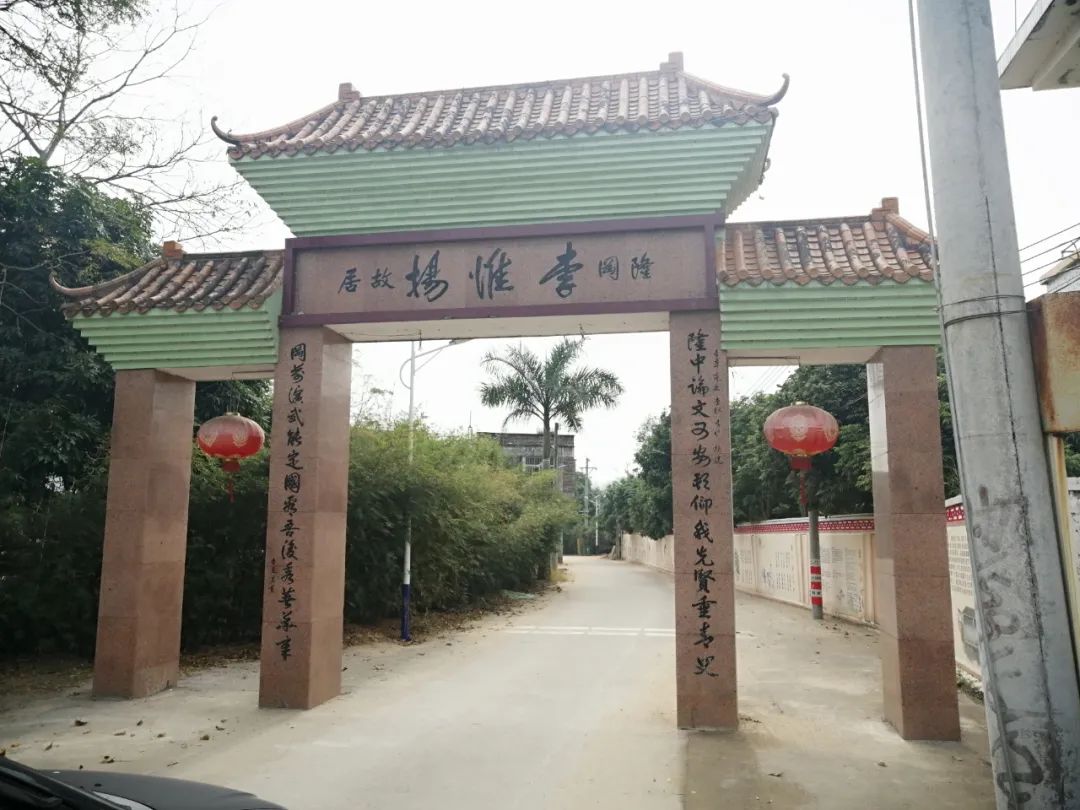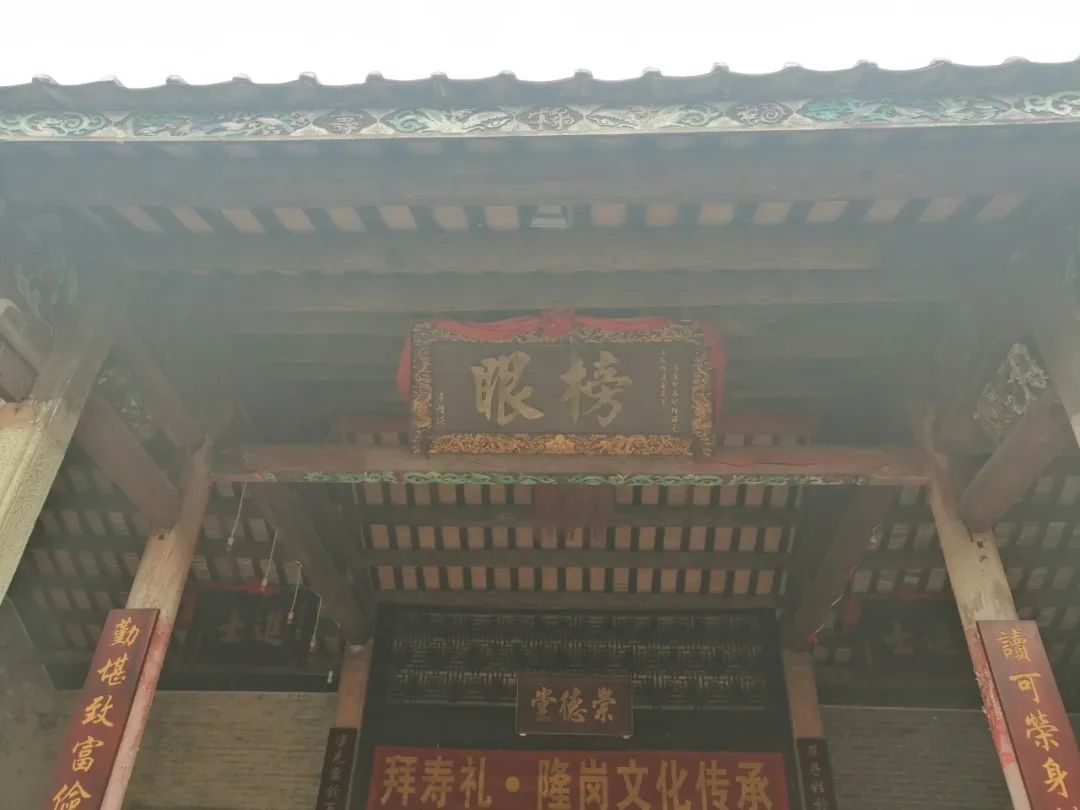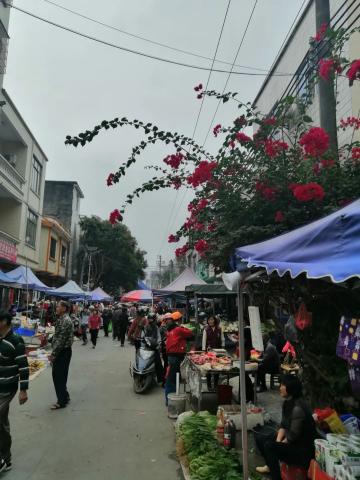
Location: Gangmei Town, Yangchun CityDecember 12th is both an ordinary day and a special day. On this day, the Double 12 shopping carnival, second only to Double Eleven, is going on online. However, this day is also the market day in Gangmei Town, Yangchun City ( we commonly call it "Wei Day"), and face-to-face physical transactions are also in full swing.
Under the brilliantly blooming azaleas, in addition to the bustling crowds of people going to the market, you can see countless racks selling cured ducks everywhere.
When a certain product is made to the extreme, it becomes a symbol of the local industry and a business card of the local area. Gangmei Cured Duck is famous for its long history and mellow cured flavor. Cured duck has become a local specialty famous throughout the province. In the early years, it attracted a large number of out-of-towners to buy it. In recent years, perhaps due to people's fear of pickled products, the demand for cured ducks has not been as good as before. However, judging from the stalls on the Wei, they still have the same "heroic appearance as before" and the business is still as prosperous.This ancient town is famous for its wax duck, but it is not prosperous because of the wax duck. As early as the 4th year of Xuande in the Ming Dynasty (1429 AD), people surnamed Li built a market in the east of a place called "Luohangang". 51 years later (1480), people surnamed Li built another market at the end of Luohangang. A fair, this fair is called "Gangwei Fair" because it is located at the end of Luohangang. The market originally built by people with the surname Li was called "Da Wei". Obviously, Gangweiwei was not large in scale when it was first established, but it developed rapidly and its population increased, so it was called a township. According to the official statement, "Gangwei" was changed to "Gangmei" in 1959 because "Wei" and "Mei" have the same pronunciation.Personally, I think that the change of "Gangwei" to "Gangmei" was not a deliberate change of name because "Wei" and "Mei" have the same pronunciation, but rather the result of misinformation. That is to say, later generations mistakenly wrote "Gangmei" when writing the place name "Gangwei", and later the mistake was fixed.The 1950s was a period of literacy. Both state cadres and ordinary people were generally less educated, and typos were not uncommon. Colleagues with similar low education did not see the problem, so they made documents and place name signs. wait. Thus, the wrong place name replaced the correct place name.Now let’s look at the many place names in Yangjiang and estimate that they are also the result of this kind of mistake:"Northern habits" should be a mistake for "Beiqeng". Ridge: a raised soil slope. Beiqeng: the raised earth slope in the north of Taicheng. What do you mean by "Northern habit"? No solution!"Ma Cao" can be the official who manages horses, but this place has a feng shui saying that "five horses return to their troughs", so maybe it should be the "manger"!What's even weirder is that the place name says "tourism", but the people of Yangjiang pronounce it "guanguo". There are so many more. However, Gangmei is actually much prettier than Gangwei and has a larger population. The small town has a permanent population of 50,000.Although the market days in Gangmei are 2, 5, and 8 (the days ending in 2, 5, and 8 in the Gregorian calendar are market days), such a place with a population of 50,000 is not deserted even if it is not a market day. We never Its super large meat and vegetable market can feel the bustle on weekdays.
For such a large meat and vegetable market, one customer per stall can keep the place busy. However, there is something different on the fair day. At the very least, these vegetable seedlings are not sold on ordinary days. They can only be sold on the fair day when farmers in the countryside come out to go to the market.
But those dried seeds can be sold at any time, and they are probably placed in front of people on weekdays.
There are also some medicinal materials whose names I don’t know.
Of course, the most indispensable items in the market are daily necessities.
Clothing is an everlasting theme,
However, the clothes here are also tainted with some wax duck flavor.
Although Gangmei is a rural town, there are also high-end restaurants in it.
Although there are no places of interest in Gangmei, there is the former residence of Li Weiyang, who was ranked second in the military ranking list in the Qing Dynasty.
Although Gangmei is not a gourmet paradise, it exudes the mellow aroma of waxed duck before the Winter Solstice Festival, which arouses the desire of Yangjiang people to cook salty dumplings with some waxed duck during the Winter Solstice Festival – because it is a perfect match for salty dumplings.

